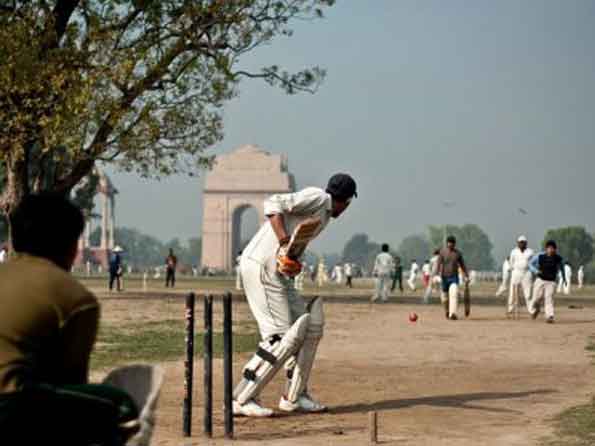
Cricket Country Staff
Editorial team of CricketCountry.
Investigators raided two hotels in the Indian capital on Sunday and seized laptops and mobile phones allegedly used by bookmakers to accept and record gambling on matches. "We have broken four betting gangs and are tracing other gambling dens active in the city," senior police officer Ashok Chand told AFP.
Written by Cricket Country Staff
Published: Feb 21, 2011, 12:26 PM (IST)
Edited: Feb 21, 2011, 12:26 PM (IST)


Betting on any sport except horse racing is illegal in India but the country is regarded as a hotbed of global syndicates
New Delhi: Feb 21, 2011
Indian police said they had busted four betting gangs and arrested eight people in New Delhi in a crackdown on illegal gambling rackets taking bets during the cricket World Cup.
Investigators raided two hotels in the Indian capital on Sunday and seized laptops and mobile phones allegedly used by bookmakers to accept and record gambling on matches. “We have broken four betting gangs and are tracing other gambling dens active in the city,” senior police officer Ashok Chand told AFP.
The syndicates targeted by police had collected $620,000 in bets during the World Cup opening game on Saturday between India and Bangladesh, the Press Trust of India news agency reported.
Betting on any sport except horse racing is illegal in India but the country is regarded as a hotbed of global syndicates, with gamblers involved “spot-fixing”, when stakes are pitched on individual balls or on short passages of play.
The shady world of Indian bookmakers came to light in a match-fixing scandal in 2000 that led to life bans for Test captains Hansie Cronje (South Africa), Mohammad Azharuddin (India) and Salim Malik (Pakistan).
The scandal broke when New Delhi police, working on an unrelated extortion case, taped a conversation between Cronje and an alleged bookmaker.
Three Pakistani players have been banned from the game for spot-fixing over deliberate no-balls in a match against England in London last year.
© AFP
This website uses cookies so that we can provide you with the best user experience possible. Cookie information is stored in your browser and performs functions such as recognising you when you return to our website and helping our team to understand which sections of the website you find most interesting and useful.
Strictly Necessary Cookie should be enabled at all times so that we can save your preferences for cookie settings.
If you disable this cookie, we will not be able to save your preferences. This means that every time you visit this website you will need to enable or disable cookies again.
